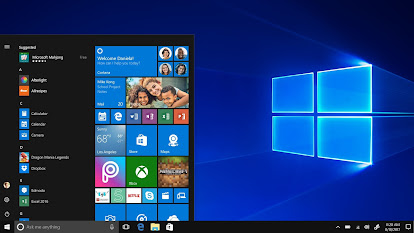Windows 10

Windows 10 is a series of operating systems developed by Microsoft and released as part of its Windows NT family of operating systems. It is the successor to Windows 8.1, released nearly two years earlier, and was released to manufacturing on July 15, 2015, and broadly released for the general public on July 29, 2015. Windows 10 was made available for download via MSDN and TechNet, and as a free upgrade for retail copies of Windows 8 via the Windows Store.

Windows 10 receives new builds on an ongoing basis, which are available at no additional cost to users, in addition to additional test builds of Windows 10, which are available to Windows Insiders. Devices in enterprise environments can receive these updates at a slower pace, or use long-term support milestones that only receive critical updates, such as security patches, over their ten-year lifespan of extended support.
Windows 10 received mostly positive reviews upon its original release. Critics praised Microsoft's decision to provide a desktop-oriented interface in line with previous versions of Windows, contrasting the tablet-oriented approach of Windows 8, although Windows 10's touch-oriented user interface mode was criticized for containing regressions upon the touch-oriented interface of its predecessor. Critics also praised the improvements to Windows 10's bundled software over Windows 8.1, Xbox Live integration, as well as the functionality and capabilities of the Cortana personal assistant and the replacement of Internet Explorer with Microsoft Edge.
However, media outlets have been critical of the changes to operating system behaviors, including mandatory update installation, privacy concerns over data collection performed by the OS for Microsoft and its partners, and adware-ensue tactics used to promote the operating system on its release.



0 Comments